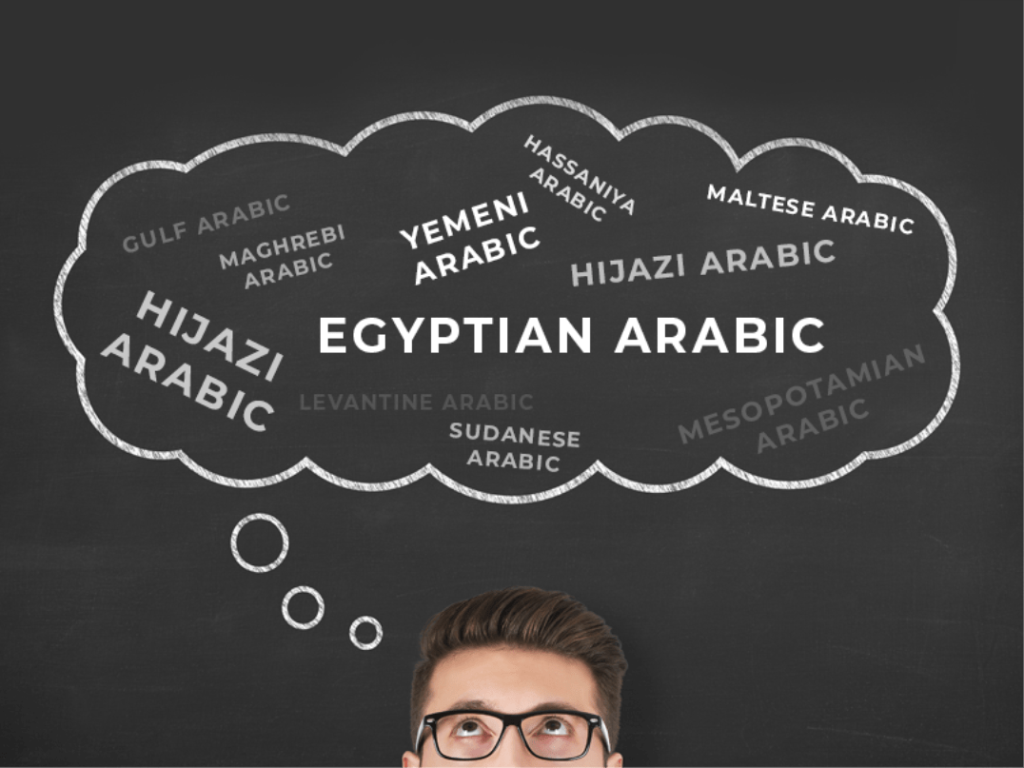Welcome to a question that every aspiring Arabic speaker faces: which Arabic dialect should I learn? The decision is a crucial one, as it will shape your learning experience, the media you can consume, and the people you can communicate with. The simple answer is that there is no single “best” or “easiest Arabic dialect” for everyone. The right choice depends entirely on your personal goals and interests. This guide will help you navigate the landscape of the Arabic language and dialects, giving you the information you need to make the right decision for your journey.
The Arabic Language and Dialects: Understanding the Landscape
Arabic exists in a state of diglossia, with two main forms:
- Modern Standard Arabic (MSA): This is the formal, written language of the entire Arab world. You’ll find it in books, newspapers, official speeches, and news broadcasts. It is the unifying, formal version of Arabic that everyone can understand, but it’s not the language of daily conversation.
- Colloquial Dialects: These are the spoken forms of Arabic used in everyday life. They are grouped into major families, including Egyptian, Levantine, Gulf, and Maghrebi.
This brings us back to the core question: which Arabic dialect to learn?
The Top Contenders: Best Arabic Dialect to Learn
When considering the best Arabic dialect to learn, three main contenders often emerge for their widespread use and accessibility.
Egyptian Arabic
Many people consider Egyptian Arabic the easiest Arabic dialect to learn, primarily because of its cultural reach.
- Widespread Understanding: Due to Egypt’s long-standing dominance in film, television, and music, the Egyptian dialect is understood by millions across the Arab world.
- Rich Resources: You’ll find an abundance of movies, TV shows, and songs to help with your immersion.
Levantine Arabic
The Levantine dialect is a popular choice, especially for those interested in the history and politics of the Eastern Mediterranean.
- Geographic Reach: It’s spoken in Jordan, Lebanon, Syria, and Palestine.
- Clarity and Tone: Many learners find its pronunciation clear and its tone melodic, making it a pleasant dialect to learn and speak.
Gulf Arabic
For those with business or professional interests in the Arabian Peninsula, Gulf Arabic is an excellent choice.
- Economic Relevance: It’s spoken in economically powerful countries like the UAE, Saudi Arabia, and Qatar.
- Closeness to MSA: Many Gulf dialects are considered to be phonetically closer to Modern Standard Arabic, which can be an advantage for some learners.
Making Your Choice: Which Arabic Dialect Should I Learn?
To decide “which Arabic dialect should I learn”, ask yourself these questions:
- What is my main goal? Do you want to read formal texts, travel to a specific country, or be able to communicate with the largest number of people?
- Which culture am I most interested in? Pick a dialect from a region whose media, history, or people fascinate you. Your motivation will be your most powerful tool.
- What resources are available to me? If you’re learning on your own, consider the dialect with the most readily available content, such as Egyptian or Levantine.
Can I Learn More Than One Dialect?
Absolutely! Many Arabic learners, especially those who become proficient, eventually learn multiple dialects. Once you have a solid grasp of MSA and one dialect, it becomes easier to pick up others, as they share a common linguistic root. You’ll begin to recognize patterns and differences, making the learning process more efficient.
Tips for Learning Your Chosen Dialect
Regardless of which Arabic dialect to learn, here are some tips for success:
- Immerse yourself: Listen to Arabic music, watch TV shows and movies, and try to find native speakers to converse with.
- Focus on everyday vocabulary and phrases: Start with what you’ll use most often in daily interactions.
- Don’t be afraid to make mistakes: Language learning is a journey, and errors are part of the process.
- Be consistent: Regular practice is key to progress.
- Utilize online resources: Our website offers comprehensive courses and resources for various Arabic dialects to support your learning journey.
Remember, starting with one dialect gives you a solid foundation. Once you’ve mastered one, it becomes significantly easier to understand others. The most important thing is to choose a starting point and begin your journey.
Ready to take your first step? Download the Kaleela Arabic learning app today! Our comprehensive lessons are designed to help you master the Arabic language and dialects of your choice, guiding you toward fluency with confidence.



